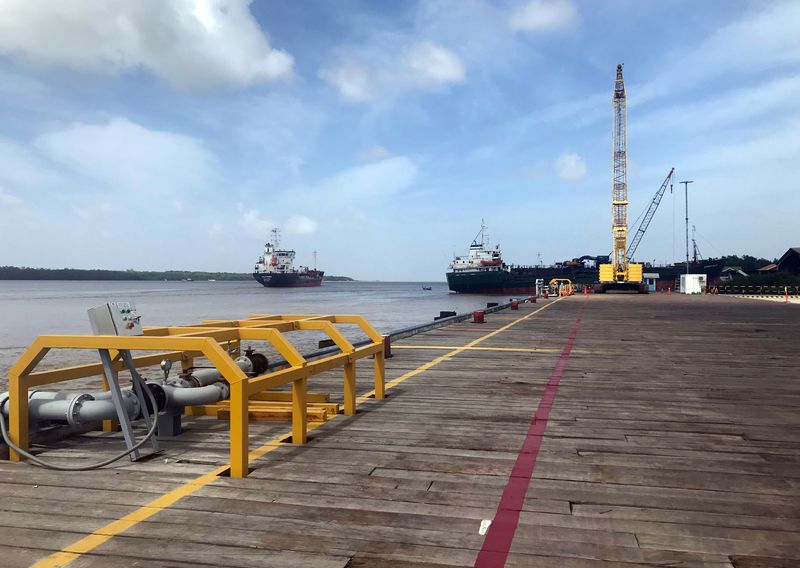By Georgina McCartney
HOUSTON (Reuters) -As Big Oil returns this week to the industry's annual showcase for offshore energy projects and equipment in Houston, deepwater discoveries off Guyana, Namibia and the U.S. Gulf Coast will take the spotlight.
Offshore exploration had dimmed after the U.S. shale boom ushered in new and cheaper-to-tap supplies of oil, and as past offshore cost overruns pushed deepwater projects onto the industry's backburner.
Newer deepwater projects have the attributes oil and gas companies are looking for: longer-term production, lower breakeven costs, big resource potentials and lower carbon emissions, said Pablo Medina, head of new ventures at energy consultants Welligence.
"Deepwater is back in vogue," Medina said.
Capital spending on all-new deepwater drilling is poised to hit a 12-year high next year, predicts consultancy Rystad Energy. Investment in all-new and existing deepwater fields could hit $130.7 billion in 2027, a 30% jump over 2023, it said.
"The return of offshore and deepwater operations is going to be a big topic at OTC, and Namibia is going to be talk of the show," said James West, senior managing director at financial firm Evercore, referring to the recent series of oil finds off the west African coast.
FASTER PAYBACK PERIODS
With crude oil prices above $70 a barrels, energy producers can expect a return on their multi-billion-dollar deepwater projects in six years, a relatively short period considering the wells' longer lives compared with shale, explained Matt Hale, vice president of supply chain research at Rystad, at the Rystad Energy Forum in Houston last month.
Deepwater resources also offer lower carbon emissions intensity than shale and other tight oils, averaging 2kg of carbon dioxide per barrel less than shale, Hale said. That appeals to investors seeking safer bets as environmental regulations tighten.
Enthusiasm for offshore has climbed with discoveries and technology breakthroughs. Namibia's Mopane is forecast to hold as much as 10 billion barrels of oil, Portuguese oil company Galp Energia said last month.
Chevron (NYSE:CVX) and TotalEnergies have made a breakthrough in ultra-high pressure environments with their Anchor project in the Gulf of Mexico, the world's first to operate at once-unfathomable 20,000 pounds per square inch (psi) pressures. The Anchor platform is preparing to start production off the Louisiana coast, and at its peak will produce up to 75,000 barrels per day (bpd) of crude and operate for 30 years.
The Stabroek block off the coast of Guyana has demonstrated the potential for low cost production that rivals the best deepwater fields elsewhere.
Over the next six years, more than half of its recoverable resources are expected pump at a breakeven price of less than $30 per barrel, according to Rystad. That is comparable to the breakeven on about 80% of deepwater recoverable resources off Norway, Rystad estimates.

Renewed interest in deepwater has boosted demand and results for offshore drilling contractors. Rates for some vessels have surpassed $500,000 a day and contract durations are lengthening as vessel supply dwindles.
"We are reaching this crescendo over the next 18 months or so where the (deepwater rig) market will level out," said Leslie Cook, upstream supply chain analyst at consultants Wood Mackenzie.